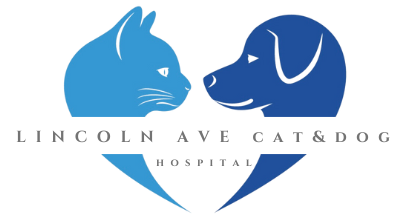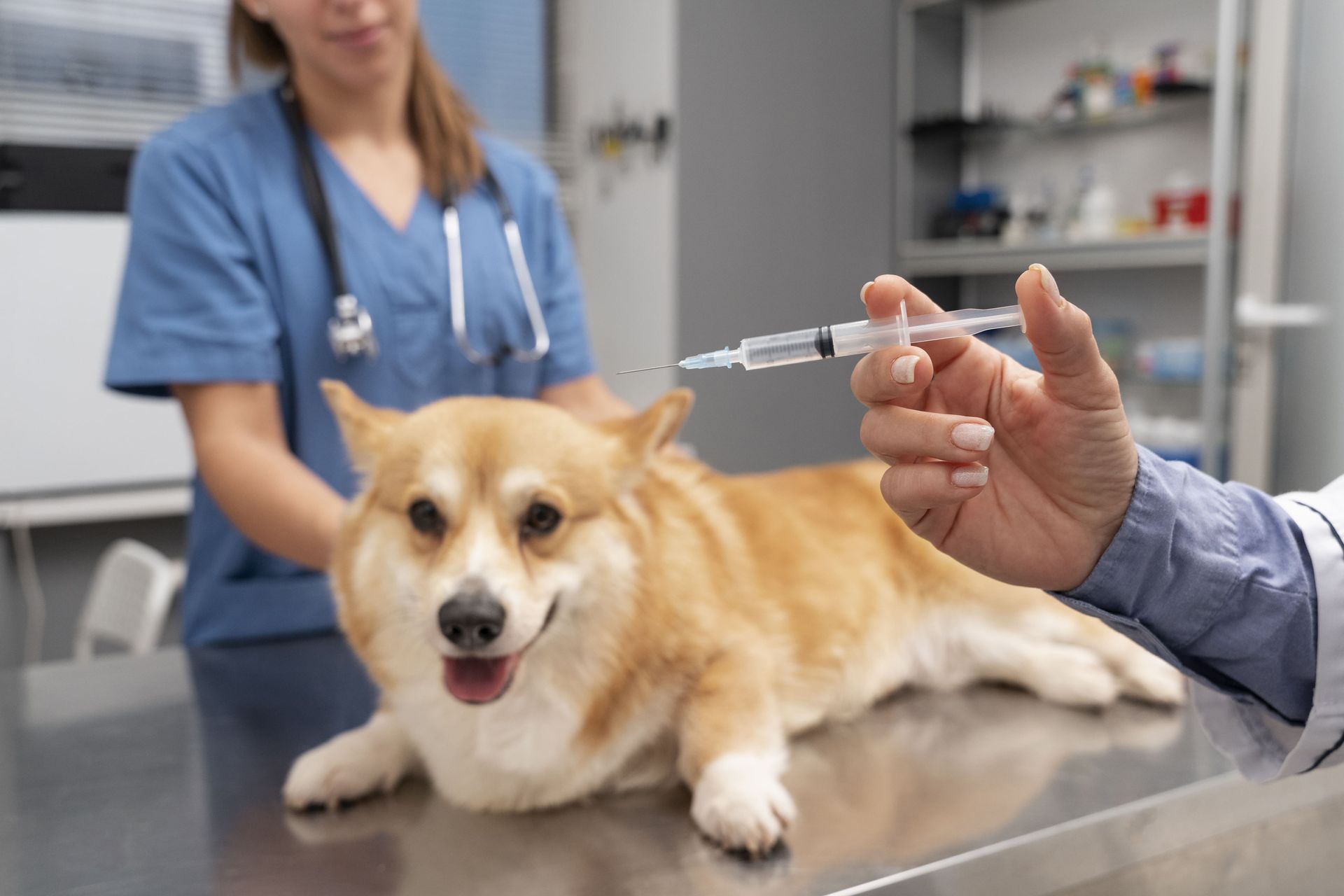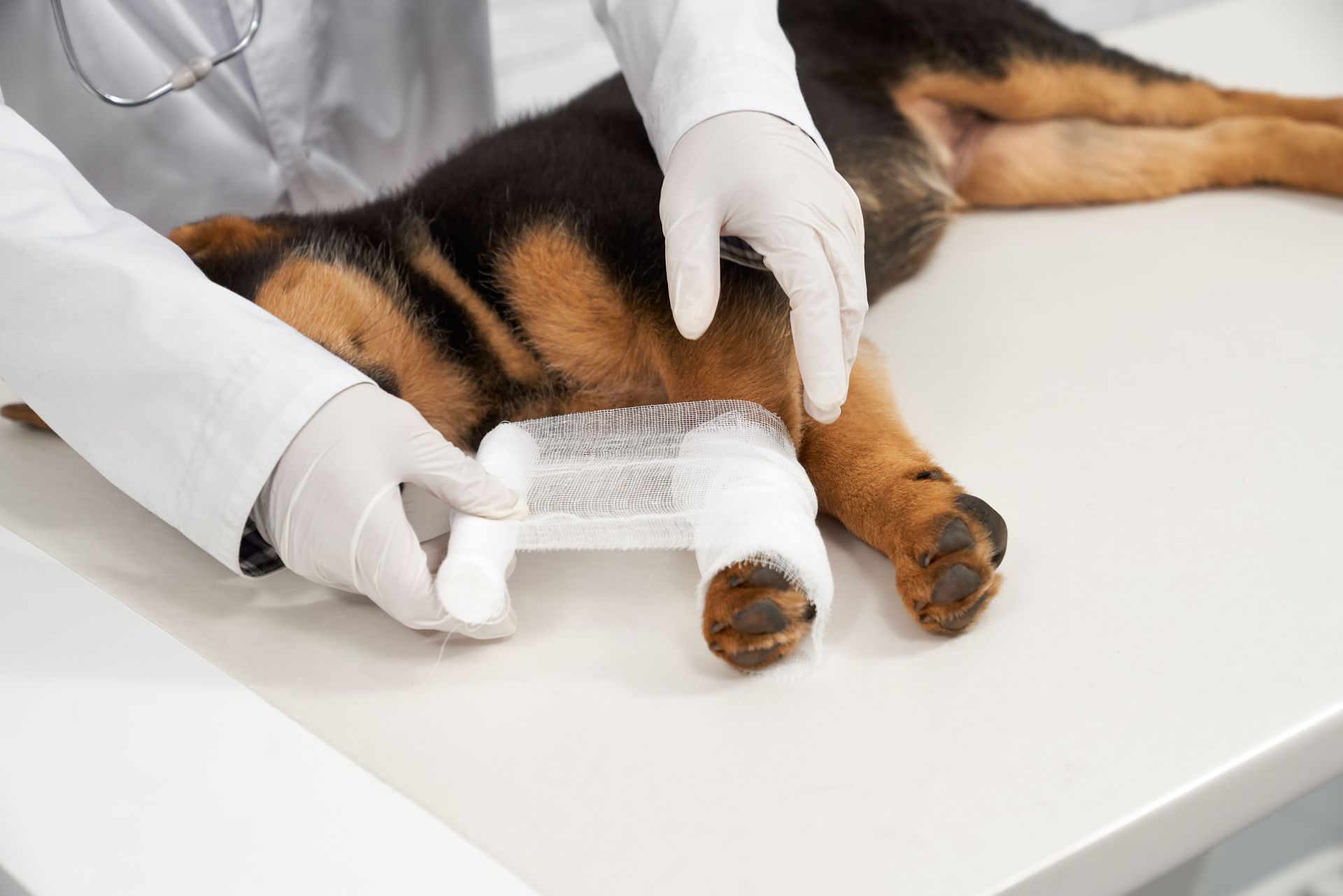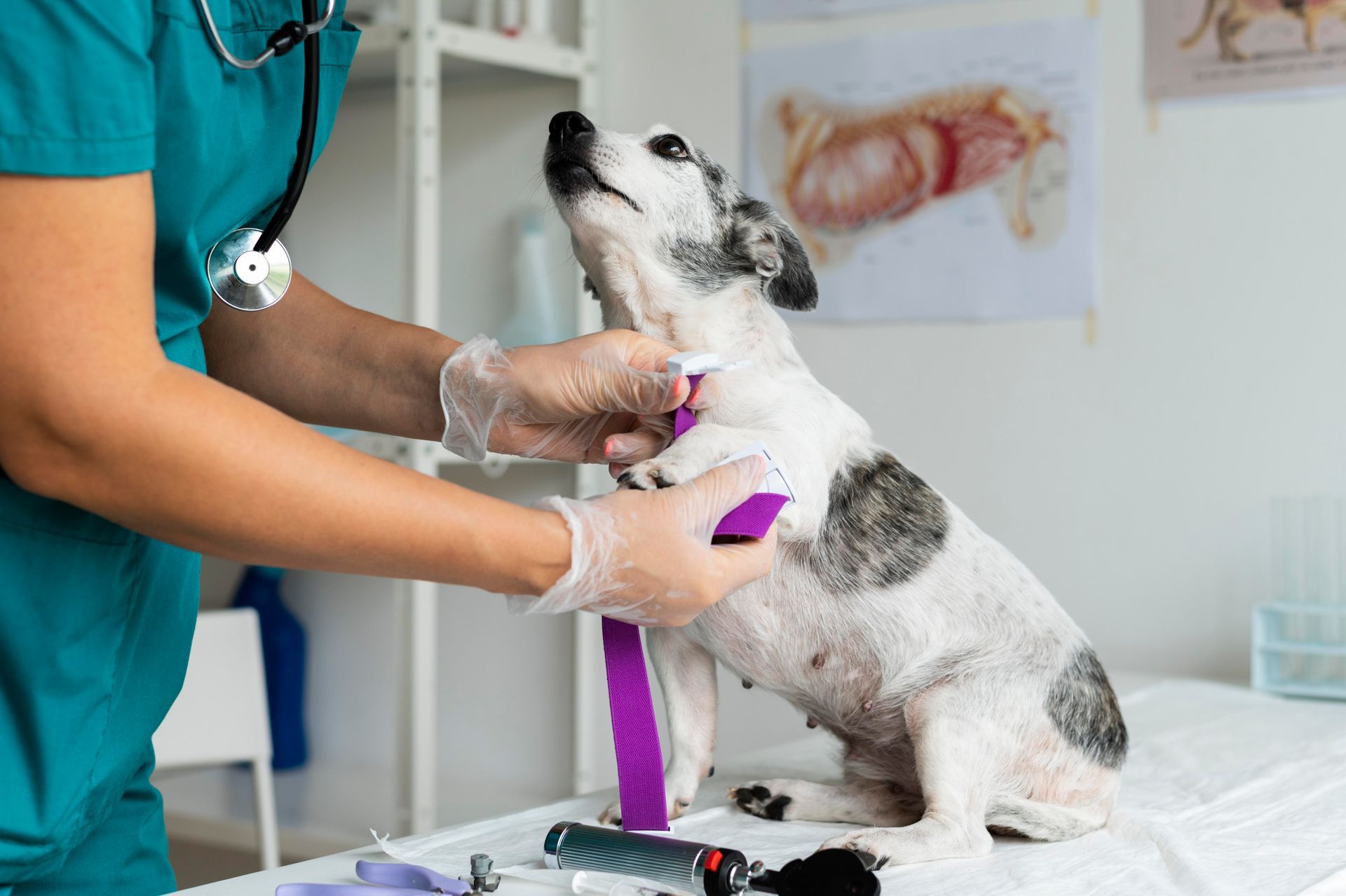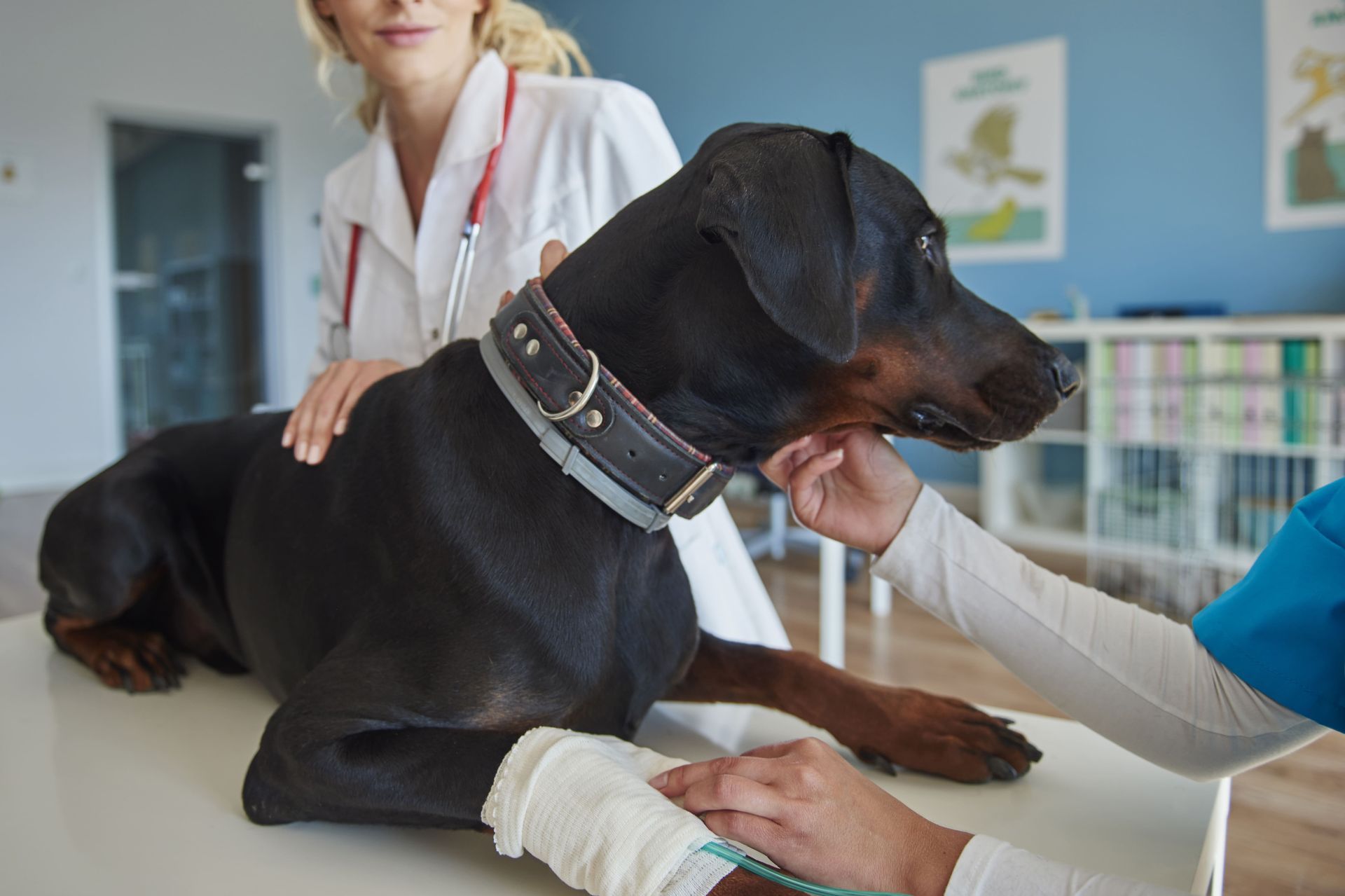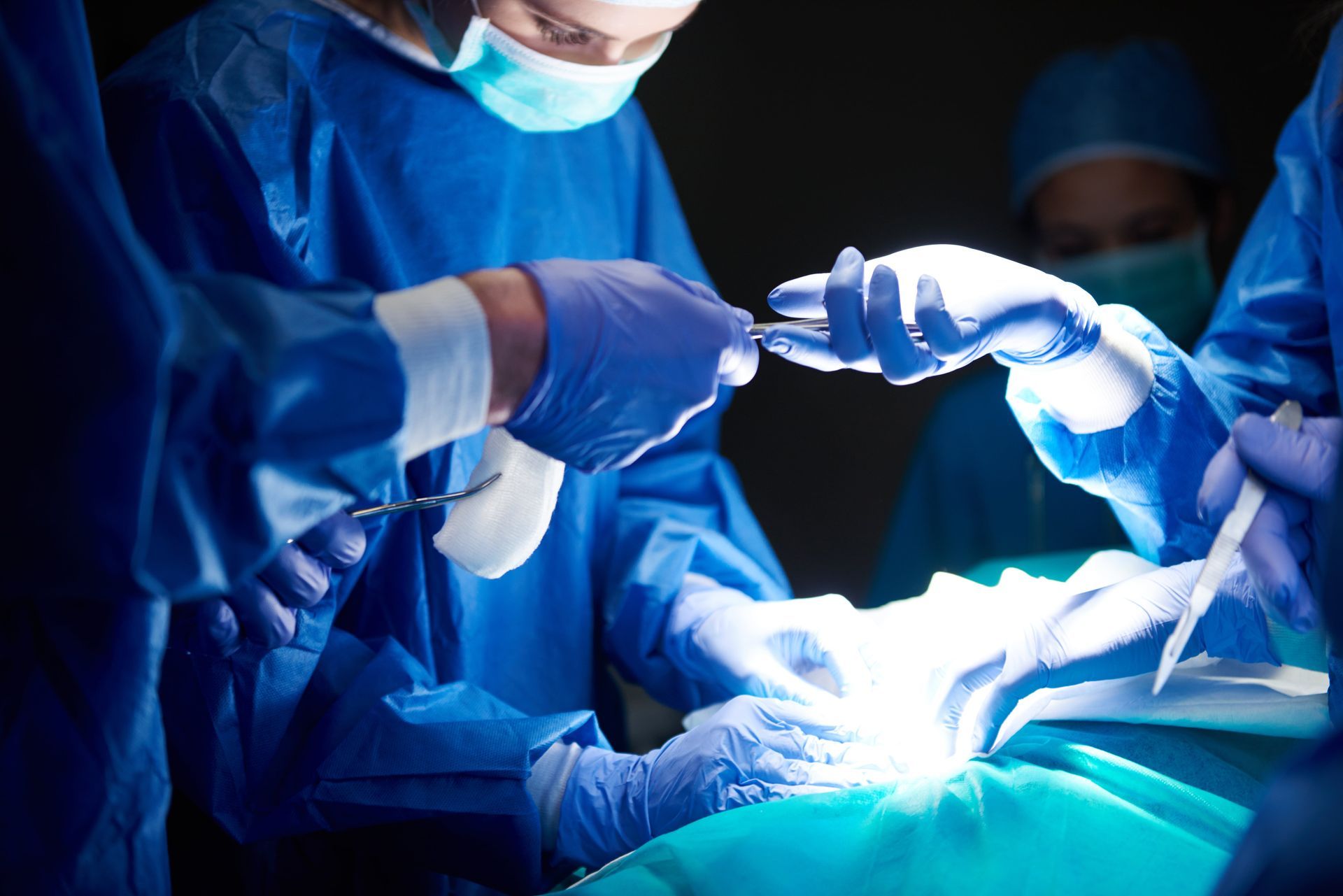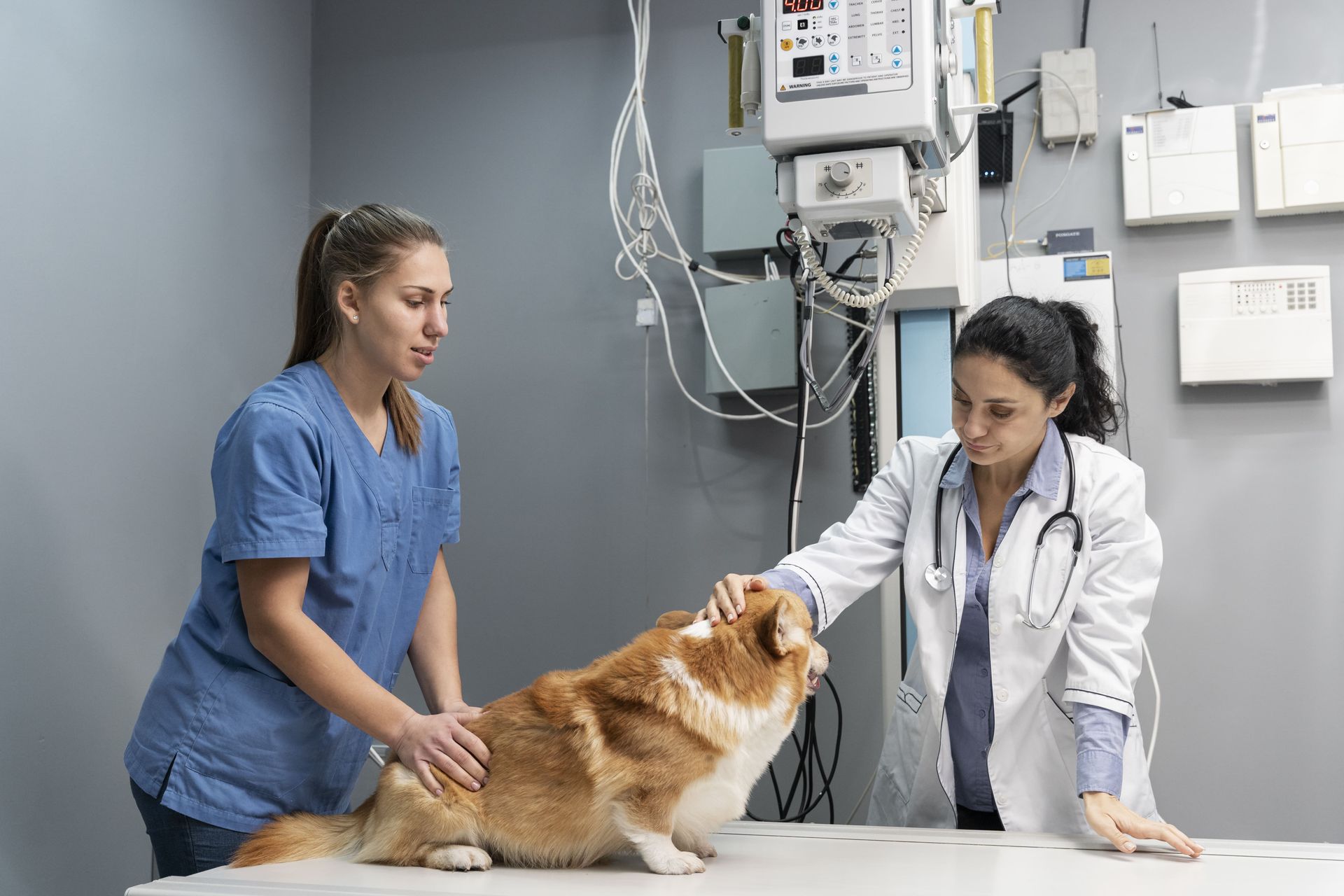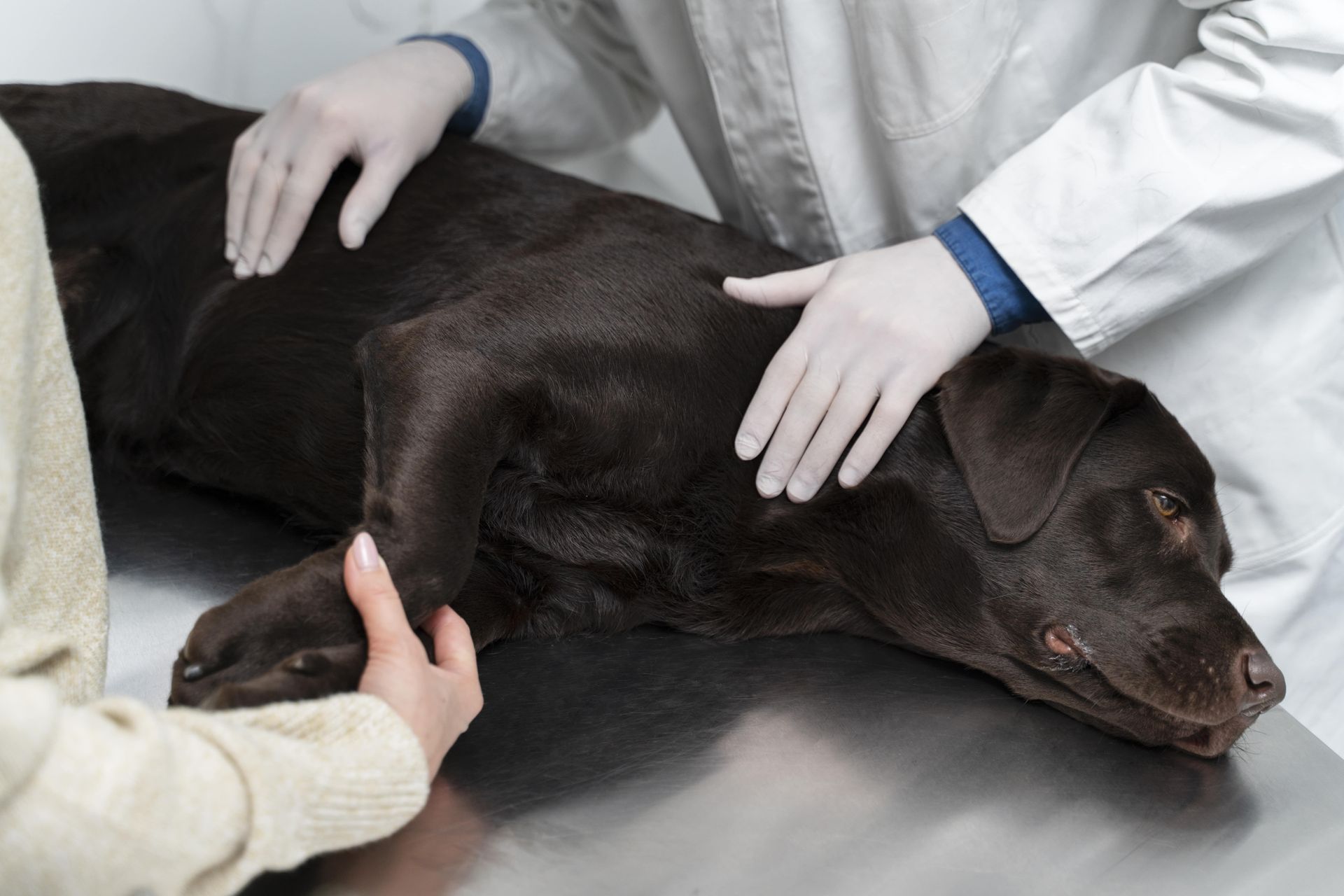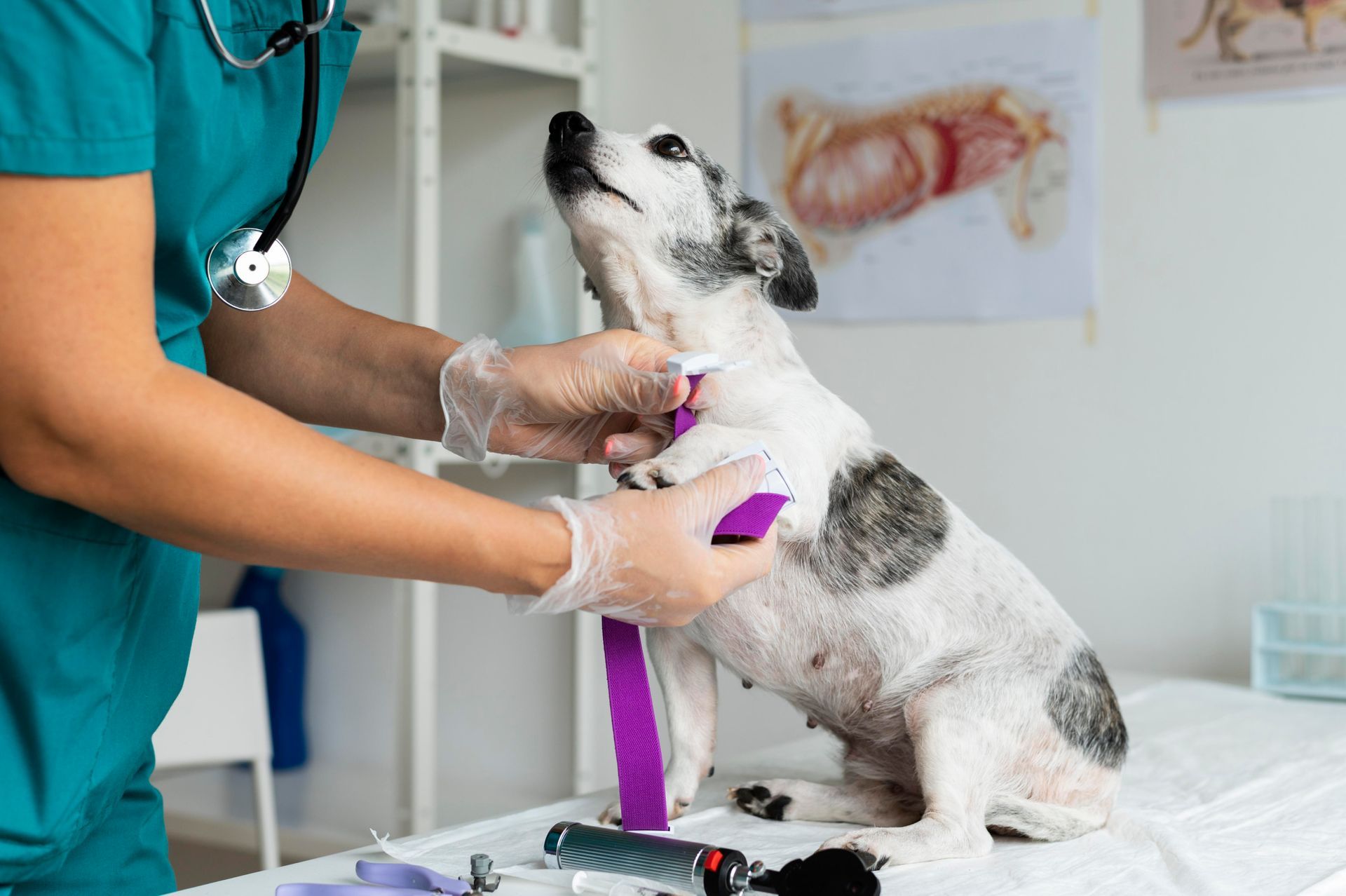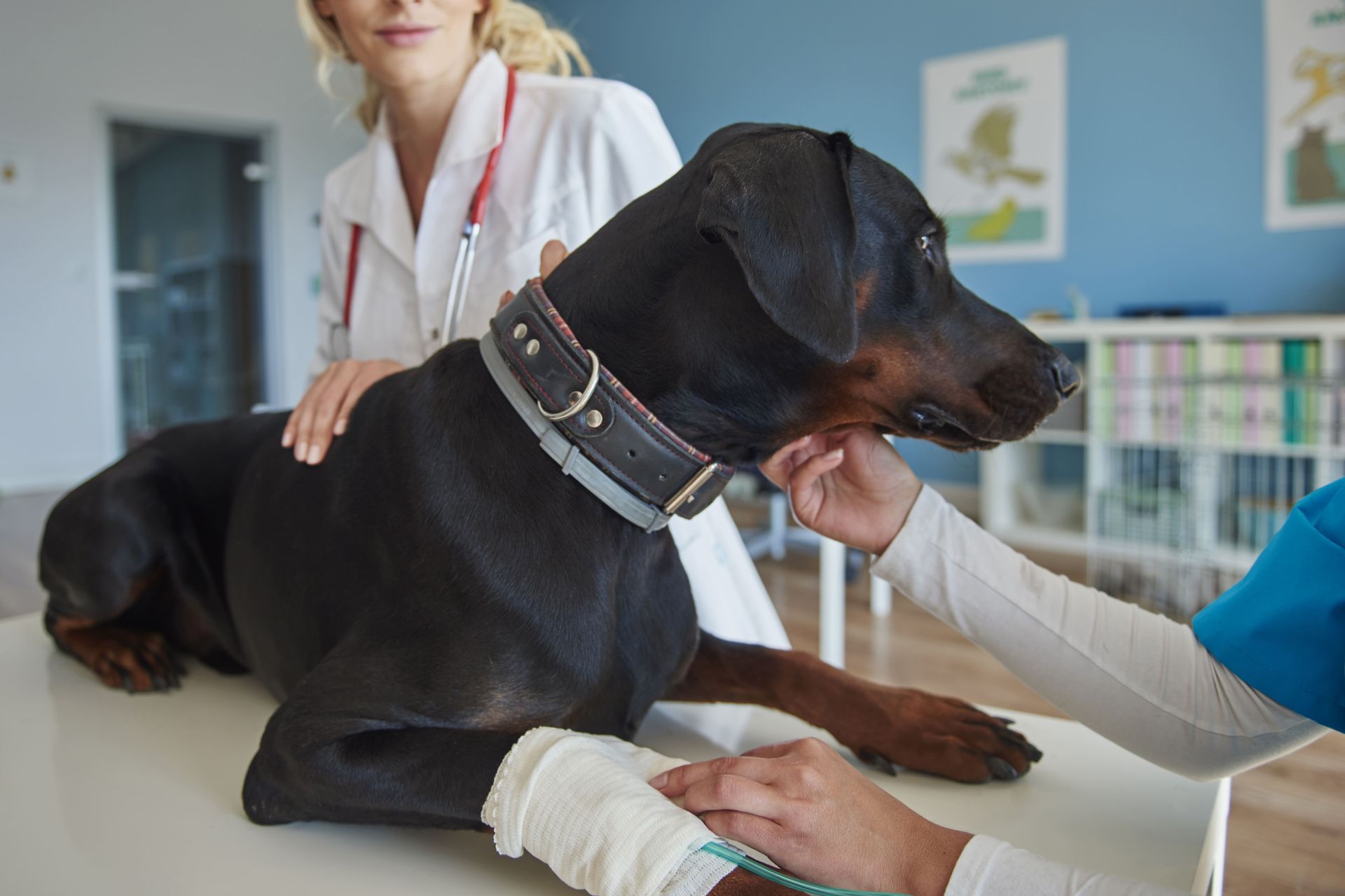Lincoln Avenue Veterinary Clinic: The Best Choice for Pet Dental Care in New Jersey
Imagine trying to enjoy your favorite meal with a constant toothache — not pleasant, right? Now picture your pet feeling the same discomfort but unable to tell you. Dental issues like plaque buildup, gum infections, and tooth decay are common in pets and, if left untreated, can lead to severe health complications affecting their heart, liver, and kidneys. Yet, many pet owners overlook oral hygiene, simply because the signs are easy to miss. That’s why pet dental care isn’t just a luxury; it’s a necessity for a long, healthy life. At Lincoln Avenue Veterinary Clinic, we recognize how vital dental care is to your pet’s overall well-being. With a dedicated team, a gentle approach, and advanced dental technology, we provide some of the best pet dental care in New Jersey—because every wagging tail or contented purr begins with a happy, healthy smile.
Understanding the Importance of Pet Dental Care
Pets often face dental issues like plaque buildup, gum disease, and tooth decay, which can lead to serious health problems. Regular dental care helps in preventing these issues and maintaining the overall health of your pet.
Dental diseases in pets can sometimes be silent, with signs not appearing until the problem is severe. This can affect not only the mouth but can spread harmful bacteria to other parts of the body, such as the heart and kidneys. Being proactive with your pet’s dental health can significantly mitigate these risks, ensuring they lead a happy and healthy life.
According to research, dental care for pets can enhance their quality of life by making eating comfortable and enjoyable again, reducing pain and discomfort caused by dental diseases.
At Lincoln Avenue Veterinary Clinic, we believe that prevention is just as important as treatment. That’s why we encourage pet owners to stay informed and involved in their pet’s oral health journey right from the start.
What Makes Lincoln Avenue Veterinary Clinic Stand Out?
Our clinic is known for its compassionate, experienced staff and state-of-the-art dental technology, ensuring your pet receives the best care. Our team is dedicated to creating a stress-free environment for your pets.
Founded in 1984, Lincoln Avenue Cat Hospital established itself as a trusted regional leader dedicated exclusively to feline care. In 2023, we proudly expanded our expertise to include the treatment of canines, continuing our commitment to providing exceptional veterinary services for all our patients.
At Lincoln Avenue Veterinary Clinic, we pride ourselves on the personalized care we offer. Each pet is unique, and our tailored dental plans reflect our commitment to meeting their specific needs. Our team goes above and beyond to ensure every visit is a positive experience for both pet and owner.
We understand how overwhelming dental procedures can seem, which is why we offer detailed consultations and clear communication every step of the way. This commitment to transparency is what builds trust with our clients, making us a preferred choice for many pet owners.
Visit our friendly team at 133 Lincoln Ave, Fair Lawn, NJ 07410. We’ll treat your furry friend like family and give them the dental care they deserve. Whether it’s your first visit or a routine check-up, Lincoln Avenue Veterinary Clinic ensures that your pet feels safe, loved, and cared for throughout the entire process.
Comprehensive Dental Services Offered
From routine cleanings to advanced dental procedures, Lincoln Avenue Veterinary Clinic provides a wide range of services. We tailor our care plans to meet the specific needs of each pet, ensuring optimal dental health.
Our services include thorough exams, teeth cleaning, polishing, dental X-rays, and surgeries when necessary. This comprehensive suite of services ensures that every aspect of your pet's dental health is covered.
The meticulous attention to detail at our clinic minimizes the stress of dental procedures, ensuring that every aspect from anesthesia to aftercare is handled with the utmost care and professionalism.
Benefits of Regular Dental Check-Ups
Regular dental check-ups
at Lincoln Avenue Veterinary Clinic help in early detection of dental problems, which is crucial in preventing more severe issues. Keeping up with these check-ups can significantly improve your pet’s quality of life.
Proactive dental check-ups not only save costs related to treating advanced conditions but also spare your pet from unnecessary pain and discomfort. Early detection of issues can pave the way for simpler, less invasive treatments.
These visits also serve as an opportunity to refresh pet owners on best practices for maintaining oral hygiene at home, ensuring continuity of care between professional visits.
At Lincoln Avenue Veterinary Clinic, we empower pet owners with insights and resources so they feel confident in maintaining their pet’s dental care at home.
Tips for Maintaining Your Pet’s Dental Health at Home
While professional dental care is essential, daily oral care at home plays a vital role too. We offer practical tips and products that can help maintain your pet’s dental health between visits.
Brushing your pet’s teeth regularly with pet-safe toothpaste, providing them with dental chews, and ensuring they have toys that promote dental health are excellent ways to support their oral hygiene.
A balanced diet is crucial for a pet's overall health, including dental well-being. Integrating foods that support oral health can further reduce plaque and tartar buildup.
Engaging with your pet in routine dental care activities can also serve as a bonding opportunity, making their health maintenance a part of your everyday life.
The team at Lincoln Avenue Veterinary Clinic is always ready to guide you with the best at-home care tips tailored specifically to your pet’s breed, age, and dental condition.
Why Lincoln Avenue Veterinary Clinic Is the Best Choice for Your Pet's Dental Care?
Dental care is an essential part of your pet's health regimen. By choosing Lincoln Avenue Veterinary Clinic, you ensure that your pet receives top-quality care with the comfort and expertise necessary for their well-being. Prioritizing dental health can lead to a longer, healthier life for your furry companion.
Whether it’s preventive care or complex treatment, Lincoln Avenue Veterinary Clinic is your trusted partner in keeping your pet’s smile healthy and bright.
Final Words
Your pet’s dental health is more than just fresh breath and white teeth; it’s a vital aspect of their overall wellness. At Lincoln Avenue Veterinary Clinic, we combine advanced veterinary dentistry with compassion, communication, and tailored care. We’re here to ensure that your pet gets the best possible treatment in a calm and friendly environment.
Let Lincoln Avenue Veterinary Clinic be your first step toward giving your pet a lifetime of health, happiness, and bright smiles. Contact us now!
FAQs
Q-1. How often should I bring my pet for a dental check-up at Lincoln Avenue Veterinary Clinic?
Ans: We recommend a dental check-up at least once a year. However, some pets with ongoing dental issues may require more frequent visits.
Q-2. What are the signs that my pet might need dental care?
Ans: Look out for bad breath, difficulty eating, swollen or bleeding gums, loose teeth, and excessive drooling. If you notice any of these, schedule an appointment with Lincoln Avenue Veterinary Clinic promptly.
Q-3. Do you offer dental X-rays for pets?
Ans: Yes, we provide full dental X-rays to identify underlying problems that may not be visible during a routine exam.
